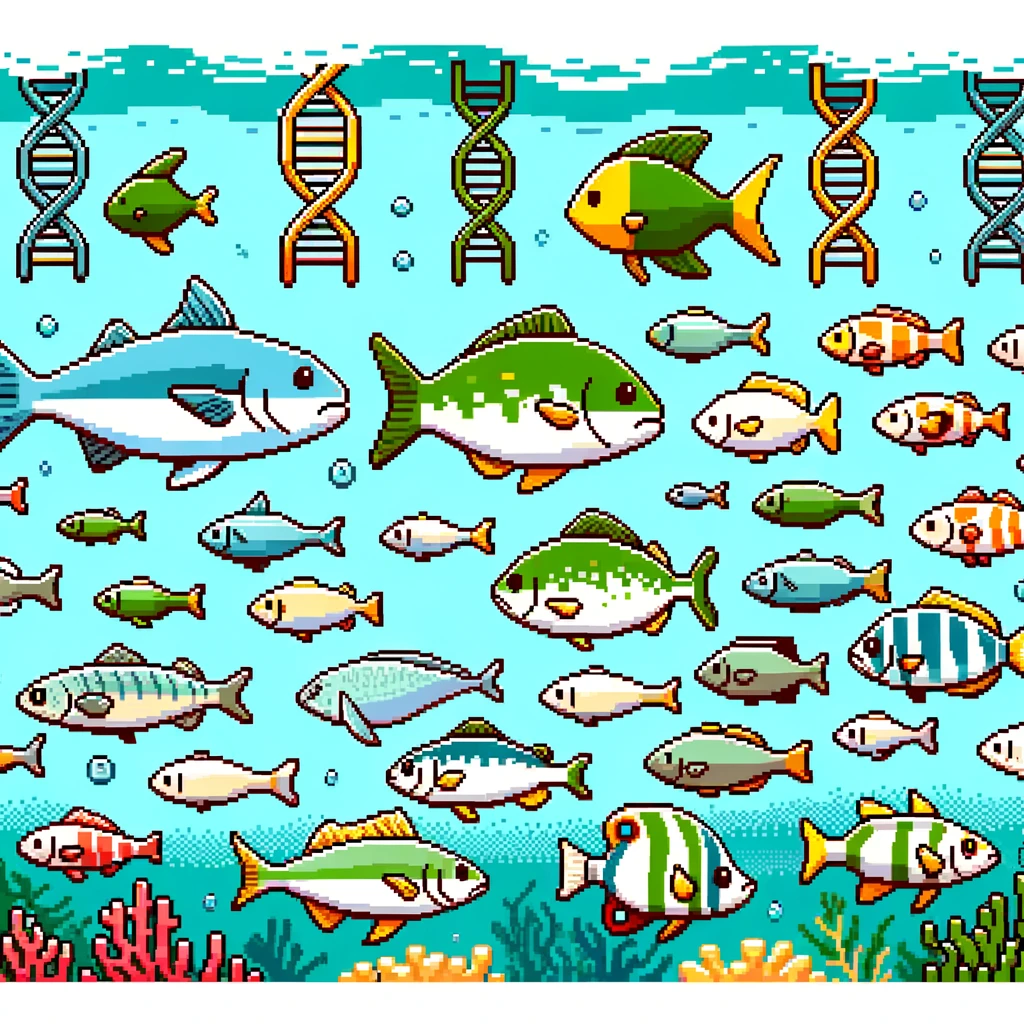
The Secret to Sustainable Fisheries: A Genomic Roadmap
In a world where the demand for food is ever-increasing and the pressure on our marine ecosystems is intensifying, we must turn to innovative solutions to sustain our oceans. The article How Fish Population Genomics Can Promote Sustainable Fisheries: A Road Map offers an eye-opening perspective on how genomics could revolutionize fisheries management, ensuring a sustainable future for both marine life and human communities.
The Dilemma of Overfishing and Its Impacts
Overfishing has led to the depletion of at least one-third of fish stocks. The consequences extend beyond the immediate reduction in fish numbers; entire marine ecosystems are disrupted, affecting biodiversity and the stability of marine food webs. Inadequate data and the complex nature of marine life have often limited the traditional methods of fisheries management.
Unlocking the Genetic Secrets of Marine Life
Enter genomics, the study of the complete set of DNA in an organism. By understanding the genetic makeup of fish populations, we can accurately identify and manage fish stocks. Genomic techniques, particularly whole genome sequencing, allow scientists to distinguish between different populations of the same species, even when traditional methods fall short.
The Role of Whole Genome Sequencing
Whole genome sequencing has revealed that marine fish, such as the Atlantic herring, exhibit significant genetic variation linked to ecological adaptations. These adaptations include factors like salinity tolerance and reproductive timing, which are essential for survival in diverse marine environments. Understanding these genetic factors is key to managing fish stocks effectively.
Practical Applications: Real-Time Management and Conservation
Imagine being able to determine the exact population of fish caught in a net in real time. This is not science fiction; it’s a potential application of genomic tools in fisheries management. For example, the Atlantic herring and the European sardine have shown significant population differentiation at the genetic level. By identifying these differences, fisheries can adjust their practices to target specific populations or avoid overfishing vulnerable groups.
Transforming Fisheries Management with Genomics
The integration of genomic data into fisheries management could lead to a paradigm shift in how we approach marine conservation. It allows for more precise and adaptive management strategies, accounting for the dynamic nature of marine populations and their responses to environmental changes, like climate change.
Challenges and the Road Ahead
While the promise of genomics in fisheries management is immense, challenges remain. The integration of this technology into existing management frameworks requires significant coordination and investment. Moreover, balancing the scientific insights with socioeconomic and political considerations will be a critical step in making genomics a cornerstone of future fisheries management.
Embark on a Scientific Adventure:
Join ‘This Week in Science’ and explore the universe of knowledge! Our weekly newsletter is crafted for educators and enthusiasts, bringing you the latest and most exciting scientific discoveries. Every issue is packed with cutting-edge research, breakthroughs, and captivating stories from the world of science. Subscribe now for free and transform your teaching and learning experiences. Embark on your path to becoming more knowledgeable and connected with the ever-evolving world of science.



